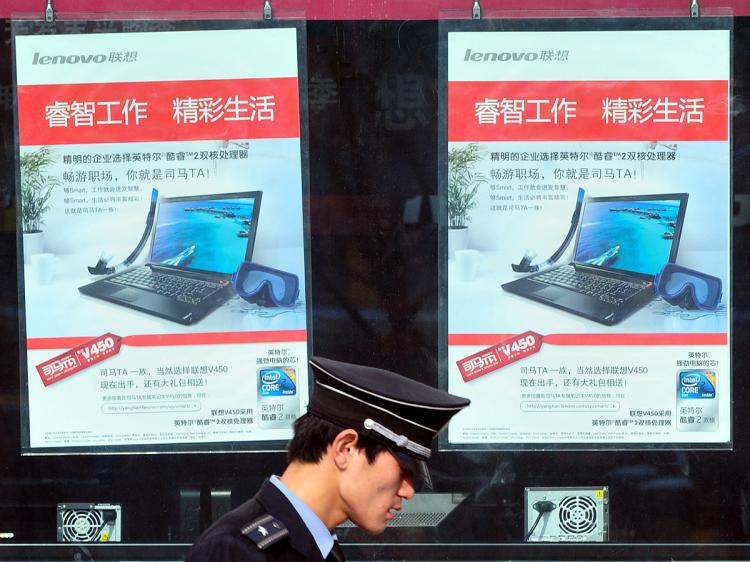Google moved its search service out of China rather than continue to collaborate in offering the Chinese people misleading, partial information. Most people following this story may not realize the extent to which most Chinese people outside of China are receiving partial, misleading information about China—and not just Chinese people.
Four years ago, when Google first entered China, its executives explained to Congress that offering the Chinese people partial information was better than offering them no information. This commonsensical idea hasn’t worked when applied to the Chinese regime, though.
From the beginning of the Internet in China, the regime has sought to make it a source of information it could control—something the designers of the Internet believed to be impossible.
At the earliest stages of the Chinese Internet, Jiang Mianheng, the elder son of the then head of CCP, Jiang Zemin, suggested establishing a Chinanet, which would be totally separated from the Internet. Jiang’s proposal would have solved the threat posed by the Internet to the regime, but it was not adopted.
Instead of building a separate Chinese Internet, the regime decided to control and censor what was available through the Internet. Around the turn of the century, two projects were developed: the Golden Shield (GS) and the Great Firewall (GFW). GS mostly focuses on internal security, and the GFW focuses on the control of the information flow and censorship.
The drive for building the GFW was to stop the flow of information about Falun Gong. The main requests were from the Politburo, the Political and Legal Committee of the CCP Central Committee, the Ministry of State Security, and the 610 Office, which is directly tasked with eliminating Falun Gong.
Due to the GFW, if you search in China with simplified Chinese, the Tiananmen Square Massacre has never happened, the Dalai Lama is a monster, and in the whole world nobody talks about Falun Gong, except for what the CCP says about it. In general, the regime always gives people enough information to think they see the whole picture without really seeing the whole picture. If there were no information, people would search for the truth. Instead, the CCP gives people just enough information to lead them to draw the wrong conclusion. Google did the right thing by telling the Chinese people that it couldn’t keep sending the wrong message by offering partial information.
The Internet Outside China
The control of information inside China is only part of the story. In June 2009 Nicholas Kristof of the New York Times noticed that a search in simplified Chinese for sensitive words like Tiananmen using Microsoft’s search engine Bing would give different results from Google.com. From Kristof’s experiment, it looked as though Google only censored sensitive words on Google.cn but Bing censored them all over the world.
Microsoft explained to Kristof that the search results were due to a bug and would be fixed. Five months later, Kristof tested again, using sensitive words like Tiananmen, Dalai Lama, and Falun Gong. The “bug” was still there.
Yesterday, I tried searching “Falun Gong” with both Bing and Google.hk in simplified Chinese. From Google.hk, on the first page, three results are from the CCP’s propaganda, items numbered 6, 7, and 10. From Bing, 7 of the top 10 results are from the CCP’s propaganda. Items five and seven are from Falun Gong Web sites and item six is from Wikipedia in simplified Chinese.
Since most Chinese don’t read English, and hardly read traditional Chinese, Bing’s results make sure that even if Chinese people get around the GFW, they can only see what the CCP wants them to see. Moreover, any Chinese outside of China who search on Bing, who think they have free access to the Internet, will apparently only see partial information regarding topics the CCP deems sensitive.
TV and Language Instruction
Chinese propaganda also dominates broadcasts about China on cable and satellite TV in the United States. Almost every cable or satellite TV company carries CCTV4, the regime’s propaganda network in the Chinese language, 24 hours a day, 7 days a week. Some also carry CCTV9, the English-language version of CCTV, around the clock.
The Chinese-language network NTDTV is an independent TV station that says it aims to report honestly on events inside China, including the regime’s human rights record. This station is hard to find on cable and satellite TV.
Another example of the control the Chinese regime seeks over the information about China available to those outside China involves the teaching of Chinese. The regime has set up 50 Confucius Institutes in the United States. The name is misleading. The institutes’ curriculum is not based on the teachings of Confucius but on what the institutes call a “new concept.” In plain English, the institute’s curriculum is based on the culture developed and sponsored by the CCP; in teaching the Chinese language, the institutes are teaching about China in the way the CCP approves.
In the censorship of the Internet inside mainland China, the skewing of search results in the Chinese language outside China, the domination of Chinese-language cable and satellite TV, and the rapid expansion of Chinese-language instruction in the West sponsored by the Chinese regime, the CCP aims to provide partial and misleading information about itself. Google could leave China to do business in free societies, but the Chinese regime seems to be taking ever-bolder steps to change how those free societies will be able to view it.








Friends Read Free